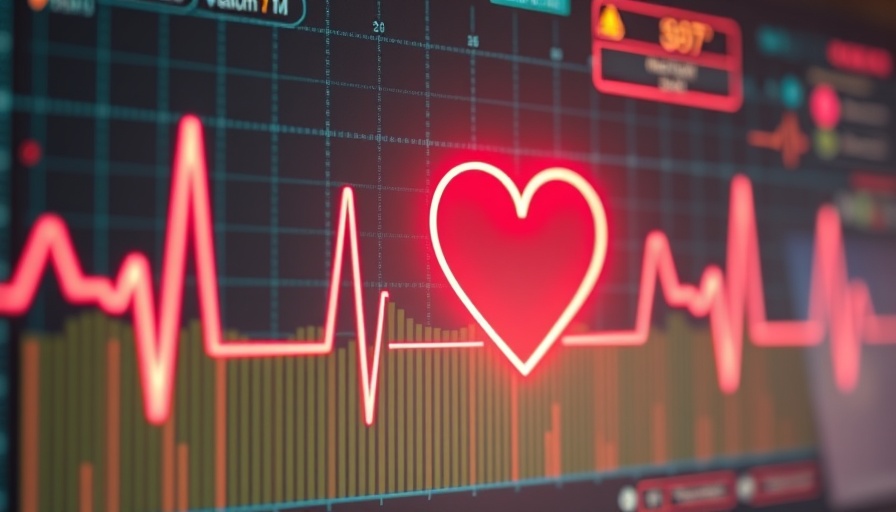
Understanding Cardiac PTSD: A Hidden Health Crisis
The intersection of cardiac health and mental well-being is a critical area often overlooked in healthcare discussions. According to Dr. Donald Edmondson from Columbia University, nearly one in three patients who endure significant cardiac events, such as heart attacks or major surgeries, develop a form of post-traumatic stress disorder (PTSD) termed cardiac PTSD. This condition does not merely disrupt emotional health but poses real challenges in managing ongoing cardiovascular issues, creating a vicious cycle that can exacerbate both mental and physical health outcomes.
The Psychological Impact of Cardiac Events
Heart events are often accompanied by severe emotional responses. Dr. James Jackson from Vanderbilt University emphasizes the need for specialized mental health interventions for these patients. Unlike cancer survivors, who have tailored support programs, cardiac patients frequently lack access to similar resources. Early psychological interventions can significantly reduce long-term complications associated with cardiac PTSD, underscoring the importance of addressing mental health as soon as possible following a major cardiac incident.
Why Early Intervention Matters
Cardiac PTSD can develop quietly, lurking in the background as patients struggle with feelings of fear, anxiety, and confusion that follow their cardiac events. Dr. Edmondson argues that without prompt identification and intervention, these feelings can lead to more complex mental health challenges. Symptoms like sleep disorders, increased physical inactivity, and an obsession with perceived health symptoms can emerge, creating a feedback loop of anxiety and physical health decline.
Pioneering Screening Techniques for Cardiac PTSD
Current research suggests that cardiologists can easily introduce a four-point screening tool during follow-up appointments to identify patients at risk for cardiac PTSD. This proactive measure aims to recognize if patients felt terrified by their event, if they frequently discuss symptoms, their sleep quality, and their level of physical activity. By identifying at-risk individuals, healthcare providers can implement timely interventions to prevent cardiac PTSD from taking root.
Unique Interventions Tailored for Cardiac Patients
As clinicians and researchers pave the way for new treatment modalities, there are promising approaches under discussion. Interventions could range from one-on-one counseling sessions to group therapy, focusing on shared experiences among cardiac survivors. Moreover, integrating mental health support into standard cardiac care could bolster overall recovery outcomes. These tailored strategies hint at a future where mental health is prioritized alongside physical rehabilitation, potentially changing the landscape of cardiac care.
Real Stories, Real Solutions
Patients like John, a 52-year-old heart attack survivor, illustrate the often-silent struggles associated with cardiac PTSD. John noted, “I found myself second-guessing every twinge, filled with anxiety at the thought of another heart episode. It wasn’t until I started talking to a therapist who specialized in heart health that I began to feel a sense of normalcy again.” Stories like John's highlight the critical need for accessible mental health resources integrated with cardiac treatment.
Take Action: Your Heart and Mind Matter
As research unfolds, it’s vital for patients, caregivers, and health professionals to engage in dialogue about cardiac PTSD. For patients, being aware of the symptoms can foster a proactive approach to mental health. Caregivers and healthcare providers must advocate for mental health screenings and interventions in cardiac care settings. Every step taken to address this crucial aspect of health can improve quality of life for countless individuals.
Conclusion: A Safer Space for Healing
The conversation around cardiac PTSD is just beginning. As more healthcare professionals recognize the significance of mental health in heart disease recovery, the path forward can lead to healthier, happier lives for those affected. Awareness and early intervention are our best tools in combating this under-discussed but impactful condition.
 Add Row
Add Row  Add
Add 



Write A Comment